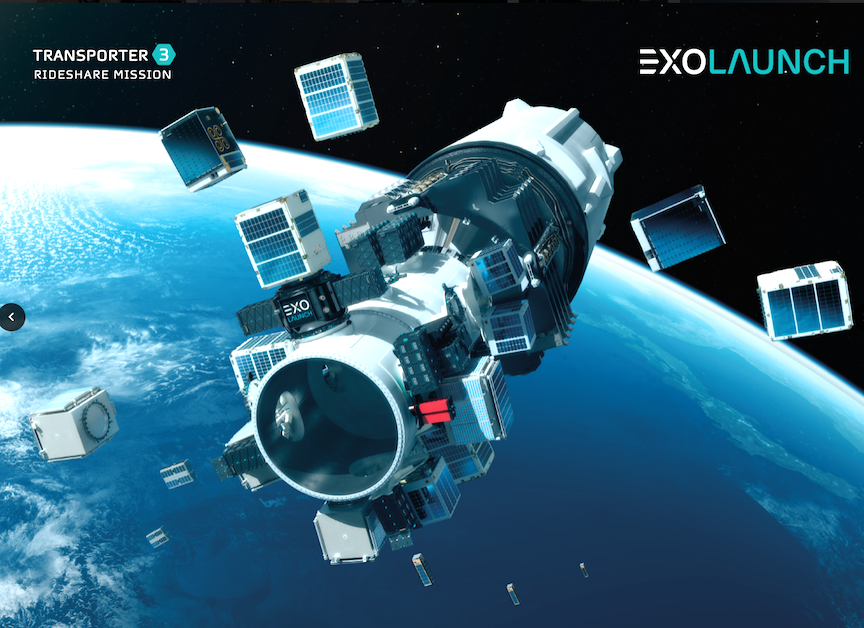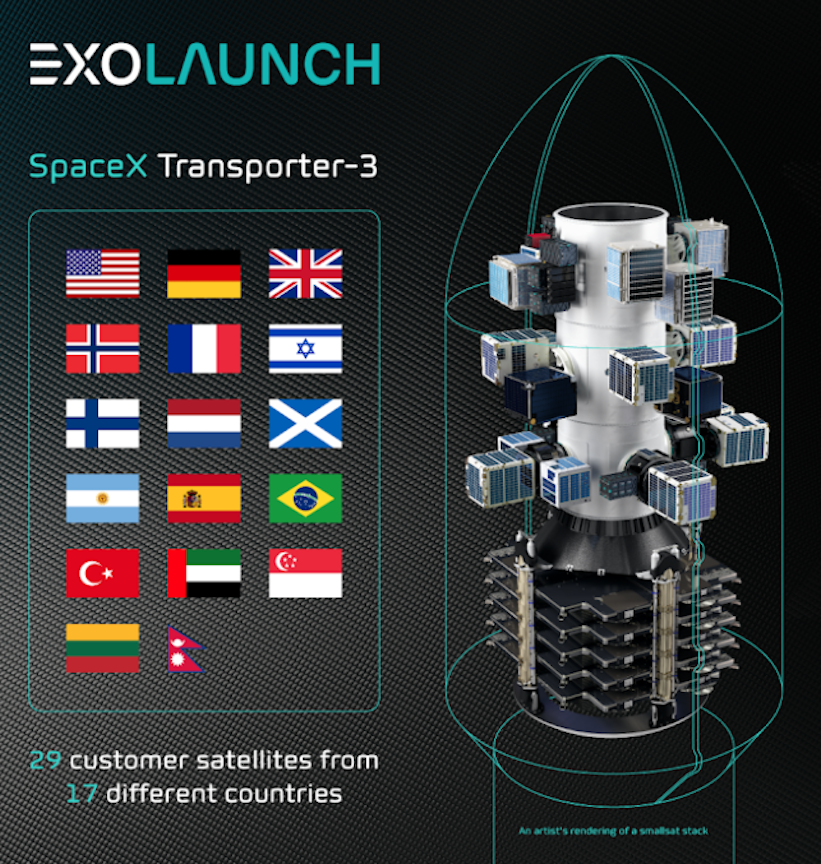
In its third dedicated rideshare mission with SpaceX, Exolaunch, global provider of launch, in-space logistics and deployment services, successfully integrated and launched 29 small satellites from customers across the globe. The company’s rideshare clusters aboard the SpaceX Transporter-3 mission were an amalgamation of microsats, cubesats (up to 16U) and PocketQubes. The combination of customers from 17 countries across four continents, and an unprecedented number of very sophisticated payloads made it the most technologically rich and geographically spread integration effort for the company yet.
Exolaunch’s rideshare customers’ payloads have top-notch technologies for the Internet of Things (IoT), Maritime Surveillance, Ultra HD Video Streaming, Synthetic-Aperture Radar (SAR) Earth Observation, and Science and Education.
The eclectic company medley incorporated returning customers such as NanoAvionics and ICEYE, as well as many notable new customers such as Sen, Unseenlabs, Lunasonde, NuSpace, FOSSA Systems and Alba Orbital. The companies behind this plethora of satellites are based in the USA, Finland, Great Britain, France, Lithuania, Spain, Scotland, Singapore, Argentina, Brazil, Germany, Israel, Nepal, the Netherlands, Norway, Turkey, and the UAE.
The launch of these 29 satellites brought the total number of satellites sent to space by Exolaunch close to two hundred.

“Never before have we integrated such a variety of satellites for a single mission,” said Connor Jonas, mission director at Exolaunch.
This mission was also the third in a series of rideshare launches, which Exolaunch is manifesting on Falcon 9 as part of a Multi-Launch Agreement, which the company first signed with SpaceX in 2020 and extended at the end of 2021. For every Falcon 9 launch procured through this agreement, Exolaunch provides an end-to-end solution encompassing comprehensive rideshare mission management, satellite integration, and deployment services. Exolaunch has launched 59 satellites weighing nearly 1,500 kg on SpaceX’s first two record-breaking dedicated rideshare Transporter missions in 2021.
To maximize payload capacity and cost-effectiveness for their customers, Exolaunch used its recent product addition, EXOport, a flexible multi-satellite adapter designed to optimally accommodate microsats and cubesats on a single Falcon 9 port. Exolaunch also used its proprietary flight-proven separation systems CarboNIX, a next generation shock-free separation system, that to date has successfully separated 24 microsats, and the EXOpod, Exolaunch’s upgraded deployer with a heritage of 139 deployed cubesats.
Michael Tolstoj, mission director at Exolaunch said, “Transporter-3 was another remarkable mission illustrating what our business is all about: Bringing together an unprecedented variety of technology from an ever-growing number of nations to help people shape the future of the planet with their ideas. It shows that our service is recognized by industry leaders as well as a growing base of recurring and new customers. Once again, our team has demonstrated technical creativity paired with a keen sense for the needs of our customers and the zeitgeist of the industry. And this is just the beginning.”
Starting next year, as a result of the entry of the Reliant orbital transfer vehicle into the space tug market, Exolaunch will be able to meet some of the most ambitious requirements of its customers who wish to deploy satellite constellations to custom orbits by adjusting altitude, inclination, LTAN (longitude of the ascending node), and performing orbital phasing. Reliant is designed to deorbit shortly after deployment completion, minimizing the risks of space collisions and mitigating orbital debris. Future generations of Reliant will also be able to perform on-demand active debris removal.
